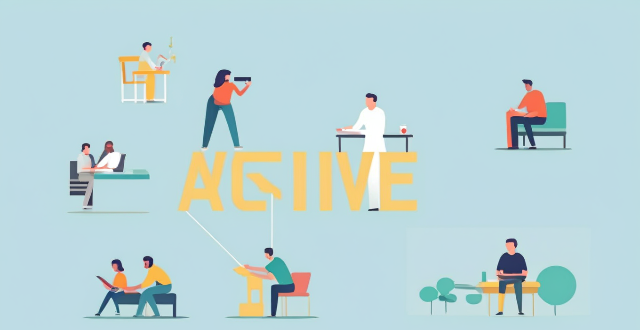Extracurricular activities can improve academic performance by developing time management skills, increasing motivation and engagement, enhancing social skills and networking, and providing stress relief and mental health benefits.

Can Extracurricular Activities Improve Academic Performance?
Extracurricular activities are often seen as a way for students to explore their interests and develop skills outside of the classroom. However, there is also evidence to suggest that these activities can have a positive impact on academic performance. In this article, we will explore how extracurricular activities can improve academic performance.
1. Time Management Skills
One of the most important skills that students can develop through participating in extracurricular activities is time management. When students are involved in multiple activities, they must learn to prioritize their time and manage their schedule effectively. This skill translates directly into the classroom, where students must balance homework, studying, and other responsibilities.
Key Points:
- Time management skills are essential for academic success.
- Extracurricular activities provide opportunities for students to practice and refine these skills.
2. Motivation and Engagement
Participating in extracurricular activities can also increase student motivation and engagement in their academic work. When students are passionate about something outside of the classroom, they are more likely to approach their schoolwork with enthusiasm and dedication. This can lead to better grades and a deeper understanding of course material.
Key Points:
- Motivated students are more likely to succeed academically.
- Extracurricular activities can help students find their passions and apply that enthusiasm to their studies.
3. Social Skills and Networking
Extracurricular activities often involve working with others towards a common goal, whether it's winning a sports game or putting on a play. This can help students develop strong social skills, including communication, teamwork, and leadership abilities. These skills are not only valuable in the workplace but can also be applied to group projects and presentations in the classroom.
Key Points:
- Social skills are essential for success both in and out of the classroom.
- Extracurricular activities provide opportunities for students to develop and practice these skills.
4. Stress Relief and Mental Health
Finally, participating in extracurricular activities can provide a much-needed break from the stresses of academic life. Engaging in physical activity, creative pursuits, or simply spending time with friends outside of the classroom can help reduce stress levels and improve overall mental health. This can lead to better focus and productivity when it comes time to study or complete assignments.
Key Points:
- Mental health is an important factor in academic success.
- Extracurricular activities can provide a healthy outlet for stress relief and relaxation.
In conclusion, while extracurricular activities may seem like an added burden on top of academic responsibilities, they can actually have a positive impact on academic performance by developing important skills such as time management, motivation, social skills, and stress relief. By balancing their commitments and making time for both academics and extracurriculars, students can achieve success both inside and outside of the classroom.